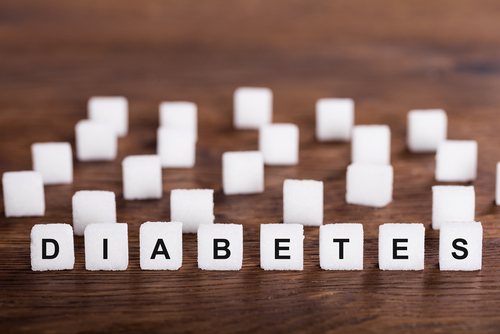Abnormal Glucose Levels Linked to Poorer Lung Function in Cystic Fibrosis Youth, Study Shows

Abnormalities in continuous glucose monitoring (CGM) measures correlate with a decline in lung function in children and adolescents with cystic fibrosis (CF), a study suggests.
The study, “Continuous glucose monitoring abnormalities in cystic fibrosis youth correlate with pulmonary function decline,” was published in the Journal of Cystic Fibrosis.
CF-related diabetes (CFRD) is the most frequent condition that occurs in cystic fibrosis patients, affecting up to 20 percent of adolescents and 50 percent of adults.
The prevalence of CFRD increases after age 10, which is when current CF guidelines recommend using an oral glucose tolerance test (OGTT) for annual diabetes screening. These guidelines are based on those of the American Diabetes Association for Type 2 diabetes. However, researchers find their applicability to CFRD questionable.
CGM has been increasingly used to detect glucose-related alterations in CF-related diabetes. Scientists have reported correlations between CGM values above 200 mg/dL and impaired lung function, as well as between time spent with CGM values greater than 140 mg/dL and poor weight gain in cystic fibrosis patients.
Despite these findings, clinicians still face difficulties in interpreting CGM profiles in CF patients. Data on CGM in youth with CF with normal fasting glucose and OGTT also are limited.
Studies conducted mostly in young adults with advanced lung disease found decreases in pulmonary function and body mass index (BMI) up to five years before CFRD diagnosis with OGTT, suggesting that abnormalities in glucose metabolism occur early in disease process, presenting a potential opportunity for timely intervention. However, whether similar results would be found in CF children with milder lung disease remains to be determined.
With this in mind, researchers in this study aimed to characterize the CGM profiles of 110 CF youth (ages 10-18) with glucose values ranging from normal glycemia to CFRD, and compare them with healthy controls.
The team also analyzed the link between CGM measures and clinical outcomes in CF patients, which were assessed based on the rate of change in lung function and BMI z-score — a reference standard measuring relative weight adjusted for child age and sex – over the year prior to CGM.
Participants were provided with a CGM device and glucometer to measure their glucose levels for up to seven days. They were trained to collect blood glucose four times per day — prior to meals and at bedtime — and to register their food intake.
All CF patients analyzed had relatively good lung function. “Our study population therefore represents a newer generation of healthier youth with longer projected lifespans in which it is critical to reassess the impact of early glucose metabolism abnormalities on clinical outcomes,” the researchers wrote.
Results revealed that several CGM measures — including peak glucose and time spent with CGM values above 140 mg/dL — were higher in children and adolescents with CF in the normal glycemia range than in healthy controls. No correlation with BMI z-score was found. There was also no difference in hypoglycemia (low blood sugar levels), a common complaint of CF patients, between the patient and control groups.
In patients with CF, a decline in lung function — assessed through forced expiratory volume and forced vital capacity parameters — correlated with diverse CGM assessments, such as maximum glucose, spikes in blood glucose level above 200 mg/dL/day, and mean amplitude of glycemic excursion, which indicates the degree of glucose level fluctuations.
Based on these results, the researchers concluded that CF youth “have higher glucoses and glucose variability,” and that “higher and more variable glucose [levels] correlate with lung function decline,” they wrote.
They suggest that further studies should investigate whether earlier treatment of glucose abnormalities can improve lung function in CF patients.







